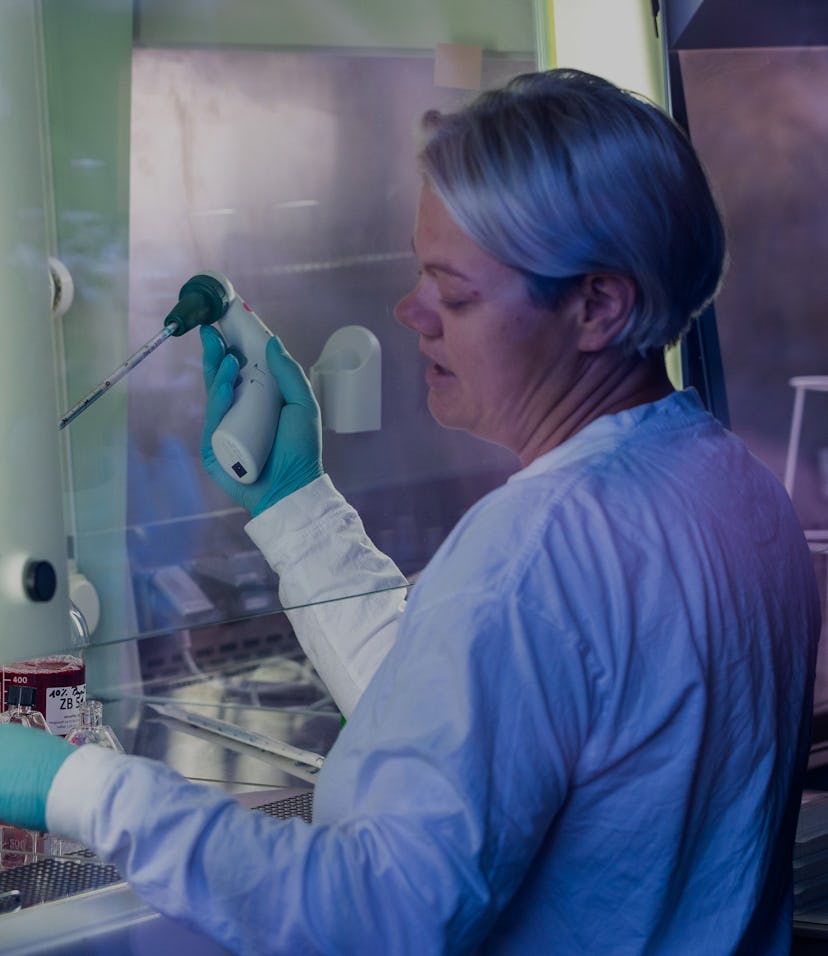Tech
A new computer chip may help scientists develop a COVID-19 vaccine
The "membrane on a chip" could help researchers monitor how the virus responds to drug candidates without having to test them on live human cells.

Researchers have found a way to continuously monitor how drugs interact with human cells that's easier than using traditional methods. A human cell "membrane on a chip" works by fusing membranes from live cells with electrodes in a way that preserves their functionality. The breakthrough could speed up research on vaccines for COVID-19.
Membranes from human cells act as gatekeepers that control anything from reaching the cell itself. Preserving these membranes, researchers can inject them with drugs or antibodies and then fuse them with COVID-19 membranes in order to identify how coronavirus gains entry to the cell. This method would help find drugs that could prevent the virus from getting in, not killing it once infected.
The membrane on a chip is said to be more efficient than traditional screenings of pharmaceutical drugs using live cells, because keeping human cells alive outside the body is challenging. They require support that isn't naturally occurring outside the body – like nutrition and hormones.
Faster, safer, better – The membrane on a chip is said to provide the same ability to screen drug candidates while being more efficient because the membranes can be monitored for longer stretches of time without assistance from lab scientists to keep them alive. Polymer electrodes newly optimized for membranes instead of live cells signal whenever there are changes in structure or other critical aspects so scientists don't have to stand watch and do it themselves. This all means many measurements can be run simultaneously.
What's more, since only the COVID-19 membrane is being used in these tests, it doesn't expose scientists to the viral acid that could actually infect them. "With this device, we are not exposed to risky working environments for combating SARS-CoV-2. The device will speed up the screening of drug candidates and provide answers to questions about how this virus works," says Dr Han-Yuan Liu, a Cornell researcher who participated in the development of the membrane on a chip.
DARPA is providing additional funding to test the device's effectiveness for screening drug candidates for COVID-19 in a safe and effective way. Future work will focus on scaling up production and automating the integration of the membranes with the chips in labs.
COVID-19 is spiking in America – COVID-19 doesn't show any signs of disappearing in the U.S. with confirmed cases topping two million, and deaths nationwide at 132,000. The country has the most cases of any country in the world, and some states have decided to close up again after reopening prematurely in recent weeks. Reports say that the Trump administration has effectively given up on stopping its spread anytime soon, hoping instead that Americans will "get used to" 100,000 daily cases. Thankfully, scientists have better suggestions.